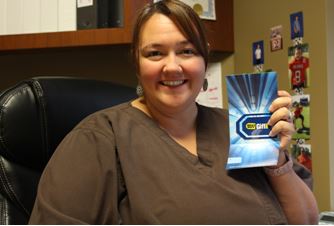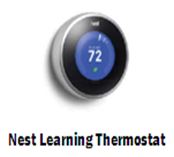September 2013

Who Else Wants To Win A $50 Gift Card?
Angela Knowles from Stonebriar Foot & Ankle! She was the first person to correctly answer my quiz question from last month and won a $50 Gift Card from Best Buy: Which musician died in August of 1977, leaving behind a huge following of fans who still adore him to this day?
The correct answer was d) Elvis Presley.
Now, here’s this month’s trivia question. The winner will receive a $50 gift card to Best Buy!
What fall tradition began when Henry VIII was king?
a) Raking leaves
b) Carving vegetables for decorations
c) Bobbing for apples

Call us right now with your answer!
214-329-1349
Which Of These 4 Cloud Computing Solutions Is The Right Fit For You?
Most likely you’ve heard all of the commotion around cloud computing and know that it’s the “Next Big Thing” in business technology. Yet, despite all of the hype, most businesses really don’t understand exactly what cloud computing is and what it could do to help their business. “What are my options?” and “What is right for me?” are two of the top questions that I hear quite often. There are at least 4 types of cloud computing solutions for your business. Which one is right for you?
- Pure Cloud: This is where all your applications and data are put on the other side of the firewall (in the cloud) and accessed through various devices (laptops, desktops, iPads, phones) via the Internet.
- Hybrid Cloud: Although “pure” cloud computing has valid applications, for many it’s downright scary. And in some cases it is NOT the smartest move due to compliance issues, security restrictions or performance issues. A hybrid cloud enables you to put certain pieces of existing IT infrastructure (say, storage and e-mail) in the cloud, and the remainder of the IT infrastructure stays on-premise. This gives you the ability to enjoy the cost savings and benefits of cloud computing where it makes the most sense.
- Point Solutions: Another option would be simply to put certain applications, like SharePoint or Microsoft Exchange, in the cloud while keeping everything else on-site. Since e-mail is usually a critical application that everyone needs and wants access to on the road and on various devices (iPad, smart phone, etc.), this solution is often a great way to get the advanced features of Microsoft Exchange without the cost of installing and supporting your own in-house Exchange server.
- Public Cloud vs. Private Cloud: A public cloud is a service that anyone can tap into with a network connection and a credit card. They are shared infrastructures that allow you to pay-as-you-go and are managed through a self-service web portal. Private clouds are essentially self-built infrastructures that mimic public cloud services, but are on-premise. Private clouds are often the choice of companies who want the benefits of cloud computing but don’t want their data held in a public environment.
Keep in mind that there is no “perfect” one-size-fits-all cloud solution for every business. All options have upsides and downsides. And which option is best for your business has to be determined on a case-by-case basis based on your company’s needs and business requirements.

Could Terrorists Really Use Software To Crash Your Car?
A recent AOL online article titled “The Scary Truth Of How Terrorists Could Crash Your Car” freaked a lot of people out by implying that terrorists could easily hack into your car’s computer systems and wreck your car (or hundreds of cars at a time) at speeds exceeding 100 mph. While that is a scary thought to consider, the facts are quite a bit less severe than the article suggests. Nothing like some great sensationalist journalism, eh?
What really are the facts? Could you really be hacked driving your car?
- Cars are more and more dependent on software and electronics to run everything in the car, including GPS, music, brake systems, your power train, throttle and more.
- A new car is a rolling computer with 80 to 100 microprocessors and 100 million lines of software code.
- Researchers from the University of Washington and UC San Diego recently were able to successfully hack into an ordinary sedan, lock and unlock the doors, turn the engine on and off and listen to a conversation going on inside the car.
- In another experiment, researchers compromised an auto repair “pass-through device” that helps technicians diagnose problems, which then allowed them to install software on every car that touched that device, potentially allowing them to control a wide range of auto functions on those cars.
New studies are being done on how to use wireless connectivity in cars to help avoid accidents, route traffic more effectively and make our travels even safer (over 90% of accidents are due to human error, and smarter cars can potentially fix that).
But the truth of the matter is that, although cars are packed with computers, very few systems can currently be controlled wirelessly from outside the car. In all reality, someone would likely need to install an additional attachment to your car’s computer system to really take it over.
Stay tuned, however, as I’m sure that this is going to be an ongoing discussion for many years to come.
Get to Know: Clay Miller

Shiny New Gadget Of The Month:

The Nest Learning Thermostat is an electronic, programmable, and self-learning wifi-enable thermostat that optimizes the heating and cooling of homes and businesses in order to conserve electricity. And if the company’s claims are correct, this smart little device can save you 20% off your energy bill each year.
Nest is built around an operating system that allows interaction with the thermostat via its easy-to-use control wheel or through your iPhone, iPad, Android phone or computer. Control your thermostat anywhere with an easy-to-use interface. This smart thermostat can determine whether or not you’re around or whether the sun is shining on the thermostat and instantly adjust accordingly—saving your money. There’s no need to program your device either as Nest works to figure out your patterns and schedules to fit you.
Since the Nest is connected to the Internet, you can instantly access your device settings or energy history and schedule from any device, anywhere. The company also pushes updates to your thermostat regularly to fix bugs, improve performance and add additional new features.
The Nest thermostat is available online for $249 at www.nest.com, or at many stores locally.
Don’t Be a Domino Pusher
You can line up DOMINOS in a beautiful pattern and spend hours doing it … but all you have to do to knock them all down is PUSH over the first one (the lead domino) and the rest will follow. The same is true about a business. You can spend years and years building up a great business with a super reputation and one employee can cause a client to never do business with you again. One employee can PUSH a client the wrong way and run them off … in other words … they knocked down one DOMINO. But, could that one upset client cause other clients to follow them?
In today’s society of instant global communication, one upset client can put the story out over the internet of your RIP-OFF … AWFUL SERVICE … UNFAIR TREATMENT … and seriously hurt your business. PUSHING the one DOMINO can sometimes cause a whole lot of DOMINOS to fall … maybe all of them.
We found out today the appliance repairman who works for the company that has done ALL of our warranty work tried to pull a fast one on us; a $2,964.00 fast one. Before I spend that kind of money, I think a second opinion is in order. So, we got the name of a really talented repairman who had done work for our neighbor and had him diagnose the problem. He said it would only cost $74.96 to fix the problem. He had it fixed in less than one hour.
We had purchased ALL our appliances for our home from the first repairman’s company and they had done ALL the previous small repairs for warranty work … but out of warranty … BANG! … time to soak the stupid consumer who has no idea what is wrong. That repairman is right. I don’t know about appliances, but I do know how to dial a phone. I do know how to go online and get other opinions. I do have neighbors who may have had similar problems.
Now, what damage has been done by the first repairman? TRUST has been destroyed. CONFIDENCE in what the first repairman (and his company) says is now a thing of the past. Will I ever do business with them again? No! There are a lot of other companies who sell and service appliances. Will I tell my friends about what happened? You bet I will. Will they believe me? They sure will. More clients will be lost because of what happened to just one client.
Every single day companies PUSH over dominos (clients) not realizing the potential damage that might be caused. I would suggest you start handling every client like they are that Lead Domino who can possibly knock them all down. If you handle your clients with the care and honesty they deserve, then you won’t have to worry about other dominos falling (clients leaving).
Your clients aren’t obligated to do business with you. You need to assume your clients are always teetering, swaying, wavering … getting ready to fall over (go somewhere else) if you push them the wrong way … and on their way down they might just knock over some other dominos (clients) as well. Are there any DOMINO PUSHERS in your company? You better hope not.
How to Safely Dispose of Old Computers
With the new year upon us, many of you may have upgraded your old PCs for shiny new ones. So what should you do about that old PC left over?
Whatever you do, don’t just throw it into a dumpster! Not only is it an environmental hazard you could be fined for, but you also don’t want complete strangers getting access to your old files, passwords, financial information, and e-mails.
First, keep your old PC around for a few months until you are absolutely certain that you transferred all of the files and programs you needed to your new PC.
Next, you need to make sure the hard drive is wiped clean of any data you had stored on it — and simply deleting the files is not enough. We recommend you seek professional help in clearing the hard drive from any old PCs you are disposing of.
Finally, you may consider donating your old PCs to a charity such as Youth for Technology (youthfortechnology.org) or Computers With Causes (www.computerswithcauses.org). Many of these organizations will clean your hard drive to prevent identity theft, and you can write off the donation on your taxes!
The Lighter Side: Truly Random Facts
- If you have 3 quarters, 4 dimes, and 4 pennies, you have $1.19. You also have the largest amount of money in coins without being able to make change for a dollar.
- The numbers ‘172’ can be found on the back of the U.S. $5 dollar bill in the bushes at the base of the Lincoln Memorial.
- In the average lifetime, a person will walk the equivalent of 5 times around the equator.
- Rhode Island is the smallest state with the longest name. The official name, used on all state documents, is “Rhode Island and Providence Plantations.”
- Every year about 98% of the atoms in your body are replaced.
- Elephants are the only mammals that can’t jump.
- The average person makes about 1,140 telephone calls each year.
- You burn more calories sleeping than you do watching TV.
- The first product to have a bar code was Wrigley’s gum.
- In ancient Rome, it was considered a sign of leadership to be born with a crooked nose.
- The word “nerd” was first coined by Dr. Seuss in “If I Ran the Zoo.”



